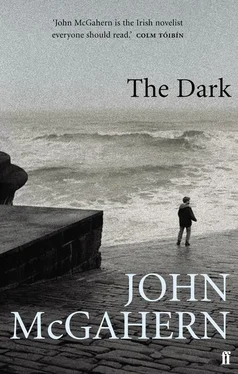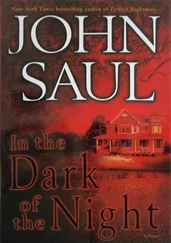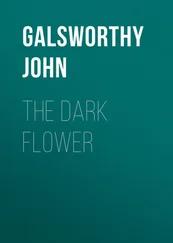John McGahern - The Dark
Здесь есть возможность читать онлайн «John McGahern - The Dark» весь текст электронной книги совершенно бесплатно (целиком полную версию без сокращений). В некоторых случаях можно слушать аудио, скачать через торрент в формате fb2 и присутствует краткое содержание. Год выпуска: 2002, Издательство: Penguin Books, Жанр: Современная проза, на английском языке. Описание произведения, (предисловие) а так же отзывы посетителей доступны на портале библиотеки ЛибКат.
- Название:The Dark
- Автор:
- Издательство:Penguin Books
- Жанр:
- Год:2002
- ISBN:нет данных
- Рейтинг книги:5 / 5. Голосов: 1
-
Избранное:Добавить в избранное
- Отзывы:
-
Ваша оценка:
- 100
- 1
- 2
- 3
- 4
- 5
The Dark: краткое содержание, описание и аннотация
Предлагаем к чтению аннотацию, описание, краткое содержание или предисловие (зависит от того, что написал сам автор книги «The Dark»). Если вы не нашли необходимую информацию о книге — напишите в комментариях, мы постараемся отыскать её.
The Dark — читать онлайн бесплатно полную книгу (весь текст) целиком
Ниже представлен текст книги, разбитый по страницам. Система сохранения места последней прочитанной страницы, позволяет с удобством читать онлайн бесплатно книгу «The Dark», без необходимости каждый раз заново искать на чём Вы остановились. Поставьте закладку, и сможете в любой момент перейти на страницу, на которой закончили чтение.
Интервал:
Закладка:
Questions moved about the Council of Trent, a point of grammar in one of the Horace Odes, Plantation of Ulster, degenerating into sheer time-wasting and ease in the end.
“Do you think if Horace came he’d understand the Latin the way we read it?”
“No. He’d probably be horrified. But you needn’t fear, McDermott, the only ghosts you should have back these days are the nights you spent in the Gaiety all winter.”
“Why is the dead language of Latin used in the Mass?”
“Because it’s the official language of the Church, binding together the differences of so many languages, the universal unchanging language.”
It was a game, not touching the exam.
A drill battered at concrete the other end of the town. Cars passed the gate on the Dublin Road, the stone Celtic cross above it, ad maiorem dei gloriam. The shadow of the great cypress, stretching farther than the hedge of flowering currant and the high wall, stayed still on the lawn. The questions lazed on.
“Were the Romans much like us?”
“Why were so many of the poets heretics and mad?”
“How many classes have you prepared for the Leaving since you became a Brother?”
“Do you think has Roscommon much of a chance in the All Ireland this year?”
“Do you think our class is among the better or worse?”
You sat on that lawn through those questions, part of your life passed that way, in the ease of the day and this shuttlecock of undemanding question and answer. Though the ease was broken by constant flashes: the exam was near, the day of reckoning. A horrible tightening of fear gathered in the guts. Benedict said you’d walk away with the Scholarship, but there was always luck he said too.
Would you fail? Fail Benedict’s opinion, not have any luck, get the wrong questions, not having what it took in the last round-up. You could hear your father’s voice when that result came.
“See where the study got you after it all, the amount of fire and light down the drain, and for nothing. Yourself and the rest of the house damned near driven cracked. Didn’t I tell you? I told you only those with the pull would get anything, didn’t I tell you that?”
You tried to shut your eyes. Your eyes strayed about. Grass, concrete, shade, strands of wire running between concrete posts and beyond the sanded yard you used cross with the bicycle, all the times rough-and-tumble soccer was kicked there with a sponge ball. Fallen lilacs were on the lawn. A hit tune started to beat through the sickness: “We’ll gather lilacs in the springtime.”
They’d all gather lilacs in a horrible summertime, parched into dust. Dry lilac petals choking your father’s mouth, your own mouth, rotting life of the lawn about the lilac tree, under the bridges of Paris with me, darling you’ll hold me tight.
The sun, the heat was the worst. The futility of the chairs on the lawn. Your father might be right enough yet, you were half crazy. If you’d kept on to be a priest you’d be calm as the others; just an easy progression into a seminary of continuing days is all you’d have to fear.
“Security. Security. Security. Everyone’s looking for security,” the Reverend Bull Reegan shouted annually from the pulpit at every annual retreat.
Lives were lived through in this rathole of security, warding off blows, dealing blows, one desperate cling to stay alive in the rat hole; terror of change; neither much risk or generosity or praise, even madness as banal and harmless as anything else there. You must get the same bus at the same time on the same road each morning, hang your hat on the same hook, have three pennies for the same newspaper which the newsboy would hand you without you asking. That was the height of the exam. That of the recognition in the city when you’d walk out of the office with the umbrella.
Dream of a girl’s mouth on the lawn in the cypress shade and Benedict’s dry ironic voice yards away with the drill digging the concrete, no taking to the air a quiet breath without moan, but the last shiver of the nerves in soft threshing thighs and lips on a dancing floor.
No. Some ordinary futility instead, fail the exam, a second-class ticket on the nightboat for Holyhead, and did it matter, but it was too close to the exam to turn back, just go blindly into it for the next fortnight for God’s sake.
“Pray for success. Ask God’s blessing. Have the peace of the state of Grace in your soul. Put yourself as an instrument in God’s hand. You’ll not fare any worse by it,” Benedict was saying, obviously ready to end the class, and it was no use to you.
“I have studied the course, worked as hard as I could drive myself. After that it’s a game with luck. I’ll just go in and do it as best I can. If anyone’s better it has nothing to do with me. There’s not places for everyone, only two, no matter how good the rest are. It’s only a shocking game. And who are the judges and what are their standards anyhow?” you tried to phrase as you left the lawn with your books and chair.
“You can go to England if all fails. You’ll work in Dagen-ham and they’ll call you Pat.”
“Will you make up a game for the alley,” O’Reilly called, it was the best. A doubles, energy let loose in this striving, the concrete wall before you, imprisoned by the high netting wire. The small elephant was a brown blur of spin and speed. There was the joy of skill and pure movement, the flash of instinctive thinking, and it was of no consequence much who won or lost. Outside the netting wire was the mould of the monastery garden, full of cabbages and young potato stalks.
22
THE DAYS IMMEDIATELY BEFORE THE EXAM TOOK ON THE quality of a dream: time passing, the will paralysed, watching the certain flow towards the brink in helpless fear and fascination, it could not be true and yet it was drawing relentlessly close. Possibility of working was gone, the listless turning of pages I knew already by heart alone in the room. Evenings across Oakport towards the river with books; but, instead of studying, all it was possible to do was gaze at the great rusting gates of Oakport that used open to coaches once, the weathered white of the rotting wood of Nutley’s boathouse, the reeds along the shore trembling with fish and the endless water. On the way home through the wood my feet tramping on the bluebells. The exam was only days away, but it was as unreal as my own death; was all life like this; and it was impossible to be easy. Crossing the stone walls of the Plains with the sheepdog in the hope of the distraction of a grazing rabbit was one escape.
The day before the exam was an intensification of the same, a Sunday, hot and without a breeze. With Joan I went on the river, in the old tarred boat, the tar melting and smelling in the heat, and I’d to pour water over the squealing rowing-pins. She let out the spoons and I rowed at slow trawling speed, but there was too much brightness, the light glaring off the water, not even in the shade of Oakport Wood along the edges of the drowning leaves did a single fish strike. Joan sat with the lines in her hands at the end of the boat. I rowed with the same mechanical slowness, lifting the oars high now and then to listen to the ripple of the boat through the glass-calm water.
“Are you worried about tomorrow?” she asked.
“I don’t know. The whole business seems cuckoo or something. It’s not real. Why did you ask?”
“No why. You didn’t speak a word since we left. I was just wondering.”
“I suppose I must be worried.”
In a dream the boat went by the known landmarks. The Gut at the mouth between a red navigation pan and a black, the Golden Bush good for perch, Toughran’s Island, Knockvicar Island and the creamery through the trees, the three arches of Knockvicar Bridge with the scum from the creamery sewer along the sally bushes, names bedded for ever in my life, as eternal.
Читать дальшеИнтервал:
Закладка:
Похожие книги на «The Dark»
Представляем Вашему вниманию похожие книги на «The Dark» списком для выбора. Мы отобрали схожую по названию и смыслу литературу в надежде предоставить читателям больше вариантов отыскать новые, интересные, ещё непрочитанные произведения.
Обсуждение, отзывы о книге «The Dark» и просто собственные мнения читателей. Оставьте ваши комментарии, напишите, что Вы думаете о произведении, его смысле или главных героях. Укажите что конкретно понравилось, а что нет, и почему Вы так считаете.












